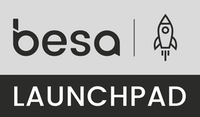Navigating Careers: 5 Crucial Questions Students Want Answered

Each year, many UK schools and businesses take part in National Careers Week. As educators, we play a pivotal role in guiding our students towards success. In this blog post, we’ll explore five key questions students often have about their careers and provide insights on how teachers can support them during this important week and throughout their time in school.
What Careers Are Available To Me?
This question marks the beginning of a crucial part of the career exploration process for students. As the world advances in technology, so does the career field. Some of your students will be choosing careers that are not fully in existence yet!
This wide realm of opportunities comes with its own problem, the paradox of choice. As educators, you can help by not only making your students aware of some of their options, but by introducing them to an array of resources, assessments and tools designed to unveil potential career paths. From personality assessments to researching different industries and their style of working, the goal is to equip students with the skills and knowledge they need to navigate an ever-changing professional world.
Key Takeaway: Focus on taking the time to explore different industry options with your students. Look for inspiring case studies and career profiles including Entrepreneurship and self-employment success stories. Combine this with a variety of personality tests to support your students with their self-discovery and building a professional identity.
Top Tip: If you are a form tutor or teach PSHE to your students - you could introduce these activities then or explore an exciting new industry together using online resources!
What Career Would I Like? Setting Goals For The Future.
Addressing this question involves providing opportunities for your students to foster self-reflection and goal setting. Young people often feel they have a lot of crucial decisions to make that will decide their future. It is important to let them know that it is okay to be unsure or to change your mind.
You could start with introducing targeted activities that prompt students to delve into their passions, values and personal strengths. This way they can harness these values when deciding on goals for their future. It can help them to decide on exam subjects to take or skills they may need to develop further. Try to raise their aspirations by remaining positive about the future - there is plenty of time to explore or change careers so encourage them to start their journey with a strong work ethic, proactive nature and hope for their future prospects!
Key Takeaway: Take the time to explain to your students that it is okay (and very normal) to not have a fixed career in mind or to change your mind completely many times in your lifetime. What they value and the interests they have will be useful tools when motivating them to make choices for themselves.
Top Tip: Let your students have a turn at being careers guidance counsellors! Provide some case studies and model personality tests and see what areas they choose as indicators for a suitable career. It may surprise them that they choose skills and interests over academic ability and friends’ choices.
What Skills Are Employers Looking For?
Answering this question requires an exploration of the diverse skills that are most valued by different employers across many industries. In schools, you can support children with skill-building first by making them aware of the different skills they are developing in each of their subjects. For example, are we just keeping active in PE or are we team building and growing communication capabilities? In history and science, can students see they are building on their critical thinking skills and ability to pay attention to detail? These conversations will help students find real-life examples of where they have demonstrated these skills when completing applications and interviews.
To bridge the gap between classroom learning and real-world expectations, teachers can integrate skill-building activities into their lesson plans. Whether through collaborative projects, simulations, or industry-specific case studies, these activities enable students to hone the skills most sought after by employers. By aligning curriculum with the demands of the professional landscape, educators empower students with a skill set that transcends academic achievement, enhancing their readiness for the workforce.
Key Takeaway: Enhance your answer to this question when teaching children what skills their future employers require by helping them to develop real-life examples of when they have demonstrated them.
Top Tip: Don’t forget the value of your feedback! Every time you praise your students for their problem-solving, team building and resilience skills, you are reminding them that their value and employability is not just embedded in their academic ability.
How Can I Stand Out When Applying For Work?
To support children in their journey towards success in their professional lives, it is important to delve into practical tips that encompass various aspects of the application process. When writing their CV or completing applications for work, study or training, students will benefit from having previous strong knowledge of the required skills and examples of where they have particularly stood out. Real-life examples of their leadership, creativity, resilience or written-communication will always hold them in good stead compared to AI written applications. Let them know there is nothing wrong with showing some of their personality in their applications.
This can be further developed when preparing students for interviews. Ask students how they can use body language and techniques to show confidence? Think of activities to help them with communicating verbally and seeing the value in their voices and opinions. Create opportunities for them to both give and receive feedback professionally and with an optimistic attitude. Seeing rejection as an opportunity for redirection and a chance to develop will be a critical skill to keep your students motivated when things don’t always go to plan.
Key Takeaway: Make sure your students are aware of how to prepare for applications, and that they are armed with a bank of real-life examples they can confidently use to demonstrate their skills to prospective employers. Using models such as the STAR method to answer interview questions may be a useful tool here.
Top Tip: Talk, talk, talk! Having conversations with your students about how they are getting on, what they are proud of and what they hope to develop further will be great practice for their ability to communicate confidently with strangers when at interviews. You could even hold mock interviews so that they could prepare for them themselves and impress you!
Work or Further Study? Next Steps After Education.
As students approach the culmination of their statutory education, the decision between entering the workforce and pursuing further education becomes a pivotal question.
For those inclined towards immediate practical skill development by joining the workforce, informing students on options such as apprenticeships being valuable options. These hands-on learning experiences allow individuals to work alongside seasoned professionals, honing their skills in a real-world setting. Apprenticeships not only provide practical expertise but also open doors to potential long-term employment opportunities. Apprenticeship opportunities have expanded greatly, are paid, and can be combined with study to greatly enhance a student’s prospects.
Further academic study will be considered by many students, who will be deciding on a vast array of options of where and what to study. You can support students when they are still at school with their decision making process, helping them prepare for interviews and ensuring they are prepared for the future responsibilities further study will bring e.g. the financial responsibilities.
Discussing the pros and cons of entering the workforce versus pursuing further education, and presenting the array of choices within each pathway, empowers students to make informed decisions about their post-education journey. This guidance extends beyond academic considerations to encompass the practical aspects of transitioning into the professional world or continuing formal studies. Ultimately, the aim is to equip students with the knowledge they need to confidently take their next steps towards a fulfilling and successful future.
Supporting Your Students This National Careers Week.
National Careers Week is a fantastic opportunity for teachers to engage with students on a deeper level and address their career-related queries. By exploring these key questions, we can empower our students to make informed decisions about their future.
Encourage teachers in your school to share their own tips and experiences on social media using the #NCW2024 hashtag. This way, the teaching community can collaborate and further support students during National Careers Week.
Careers and Personal Development With Chameleon PDE.
At Chameleon PDE, we have a range of materials for careers guidance and personal development that you can find under the ‘Future Choices and Money’ alongside ‘Personal Skills Development’ section of our resource library and like all other resources this can be edited to meet the needs of your students.
Want to find out more about Chameleon PDE?
Create a free account now to download examples of our resources (also for free!) to see for yourself what Chameleon PDE can do for you.
Have a look at our webpage for secondary schools here https://www.chameleonpde.com/resources/about?resource_type=secondary or contact us for an informal chat at info@chameleonpde.com
Our ‘wrap round’ PSHE support won the best secondary resource category at this year’s National Education Resources Awards and our services aim to provide PSHE/PD leads with the tools to put them firmly in the driving seat. By collaborating closely with our partner schools, listening to students, and collaborating with our teacher advisory board we can confidently say ‘we’ve got you covered.’




